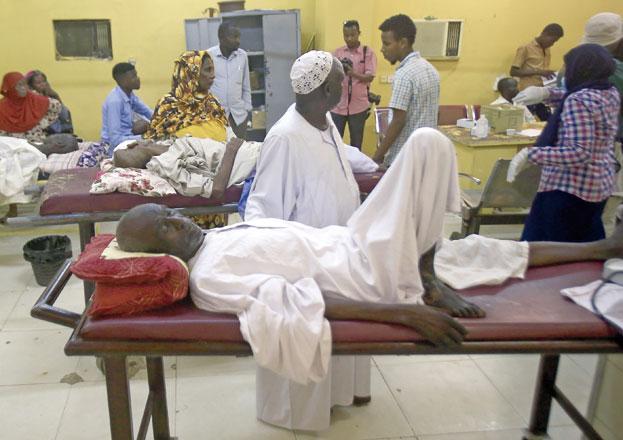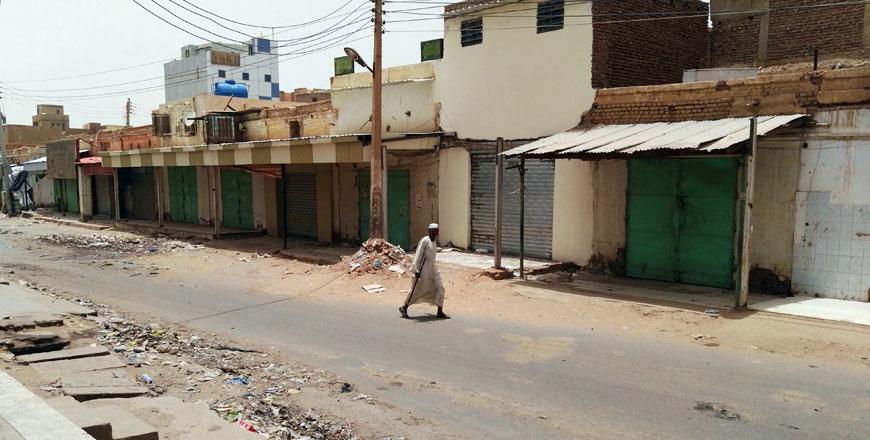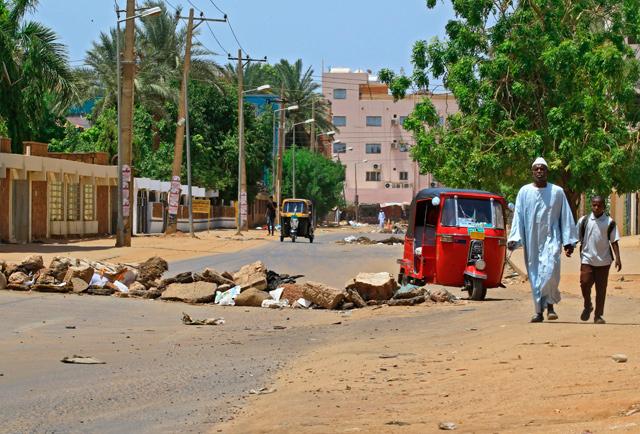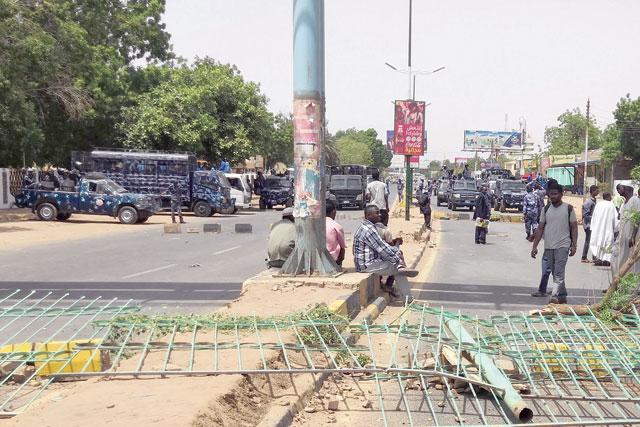You are here
Sudan 'civil disobedience' campaign enters day two
By AFP - Jun 11,2019 - Last updated at Jun 11,2019

Sudanese people wait for treatment at a hospital in Khartoum's twin city of Omdurman, as doctors take part in the second day of a nationwide civil disobedience campaign called to pressure the ruling military into handing over power, on Monday (AFP photo)
KHARTOUM — A nationwide civil disobedience campaign by Sudanese protesters entered a second day on Monday, as the authorities released three prominent rebels detained after a crackdown that left dozens dead.
Some shops opened and buses plied the streets of Khartoum, but much of the capital remained shut.
An Internet blackout and power outages made communication difficult.
The ruling military council announced that security forces on the streets would be boosted after four people were killed in clashes on Sunday — two in Khartoum and two in Omdurman, just across the Nile River.
The disobedience campaign comes a week after a deadly raid on protesters in the capital left dozens dead, and almost two months since the April 11 ouster of longtime ruler Omar Al Bashir following months of protests.
Protesters had set up roadblocks across many areas of the capital that the ruling generals have vowed to remove in order to bring "life to normal".
Several shops, fuel stations and some branches of private banks were open in Khartoum on Monday, an AFP correspondent who toured the capital said.
Public transport buses were also ferrying passengers, while more vehicles and people were seen on the capital’s streets than the previous day.
But most parts of the capital and its key business districts remained closed as shopkeepers, traders and employees opted to remain indoors.
‘I have to work’
Those who ventured out said they had to earn their livelihood.
“If I work it does not mean that I don’t support the revolution,” said bus driver Abdulmajid Mohamed.
“I have to work to support my family or else we will have no money.”
State television reported Monday that Yasir Arman, deputy chief of the Sudan People’s Liberation Movement-North which is part of the protest movement, was released along with two other leading rebels from the group, Ismail Jalab and Mubarak Ardol.
Arman arrived in Khartoum in late May to take part in talks with the ruling generals but was seized two days after the crackdown began.
Jalab and Ardol were detained after meeting visiting Ethiopian Prime Minister Abiy Ahmed in Khartoum on Friday for talks aimed at reviving negotiations.
The generals have blamed protesters for the deterioration in security in Khartoum and across the country.
“The Alliance for Freedom and Change [umbrella protest movement] is fully responsible for recent unfortunate incidents... including blocking roads which is violating international humanitarian laws”, Lieutenant General Jamaleddine Omar said on state television late Sunday.
“The Military Council has decided to reinforce the presence of armed forces, RSF and other regular forces to help normal life return”, the council member said, including the feared Rapid Support Forces, blamed by witnesses for the killings last week as a sit-in protest outside army headquarters was cleared.
He said security forces would provide “security to isolated civilians, reopen roads and facilitate the mobility of people, public and private transport and protect markets and strategic state installations”.
‘Lose our country’
Some residents called for the generals and protester leaders to narrow their differences.
“The two have to find common ground because if the situation continues like this, I’m worried we will lose our country,” said Issa Omar, an employee at a workshop in Khartoum.
The death toll since the crackdown began on June 3 has reached 118, according to a doctors committee linked to the protesters who are pressing the military to hand over power to a civilian administration.
The health ministry, for its part, says 61 people died nationwide in last week’s crackdown, 49 of them from “live ammunition” in Khartoum.
The Central Committee for Sudanese Doctors blamed forces supporting the ruling generals for the deaths on Sunday.
The Sudanese Professionals Association, which first launched protests against Bashir in December, has said the disobedience campaign would continue until power is transferred to a civilian government.
Related Articles
KHARTOUM — Four people were killed in Sudan on Sunday as protesters launched a civil disobedience campaign against the military after a bloo
KHARTOUM — Sudanese security forces have arrested two prominent rebels and an opposition leader, their aides said Saturday, just days after
KHARTOUM — Sudanese protest leaders called for a one-day nationwide "civil disobedience" campaign on July 14, in an announcement on Monday a














